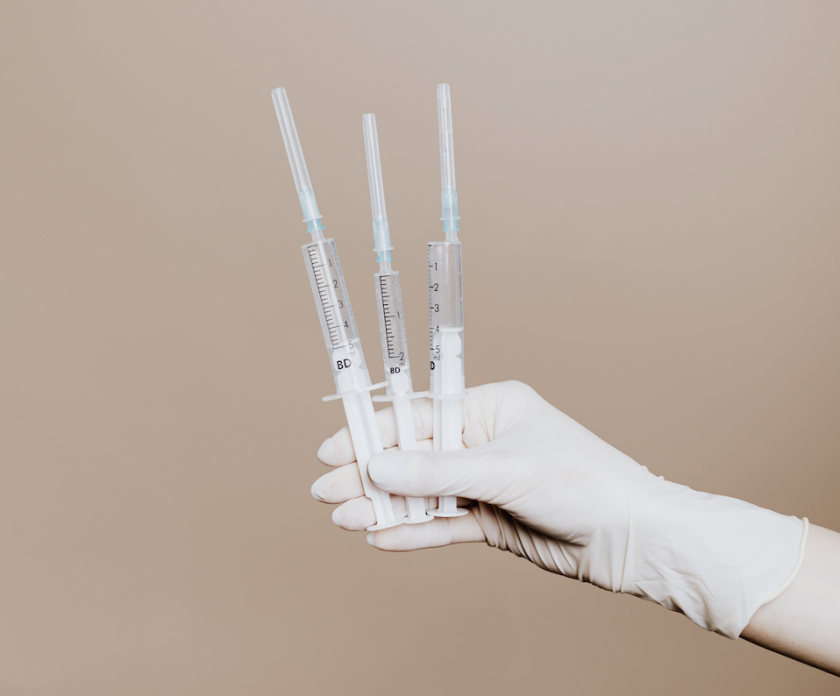Should You Get The COVID Vaccine While Pregnant?

**UPDATE, Dec 22, 2021**
We are here to support you in the current wave of COVID-19 Omicron. Vaccination, including your booster dose, continues to be the best way to prevent infection in pregnancy. This practice is recommended by the CDC and ACOG, among other major health organizations. Additionally, it is important to use good prevention strategies such as social distancing, wearing a mask, proper hand hygiene and avoiding contact with anyone presenting with symptoms of COVID and unknown status. Here is a comprehensive round up of the latest information about vaccination safety in pregnant and lactating people.For more up-to-date information on research related to COVID-19 in pregnancy, keep this resource handy as information is evolving rapidly.
—
Beginning February 15, 2021, pregnant people became eligible to get the Covid-19 vaccine in the state and city of New York. I know from my conversations with patients in the last few days that this news is welcome and exciting, but that it also brings with it the need for some important conversations about the risks and benefits of this vaccine in pregnancy. For this post, I’m specifically talking about the two vaccines most available in the US: Pfizer and Moderna.
I always start any vaccine conversation by admitting my bias. Generally, I am very “pro” vaccine. I believe that vaccines have been one of the greatest benefits to public health in the last 100 years, and I believe that the Covid-19 vaccine is our only way out of this pandemic. Having said that, I think that everyone should consider the potential risks or benefits of both the vaccine and the disease. As with most things, there is usually some level of risk in doing something (getting the vaccine) and there is also risk in doing nothing (getting the disease). Finding the balance that feels right to you is the cornerstone of your medical autonomy, and your care team at Oula will not judge your ultimate decision.
All of the national organizations that create recommendations for pregnancy have announced their support of them getting the vaccine (i.e. American College of Obstetricians and Gynecologists, American College of Nurse Midwives, Society for Maternal Fetal Medicine Specialists). Their recommendations are based on both theory about how the vaccine works and facts about the Covid disease. Though the vaccine itself has not been tested in pregnancy, in theory, it is safe. Because the Covid vaccine does not contain any live virus, you cannot get the Covid disease from the vaccine. The recommendation in favor of the vaccine is based on the fact that Covid disease seems to be more severe in pregnant people. We have data to show that people who have gotten Covid in pregnancy were more likely to have severe symptoms and more likely to die. This risk is the root of the recommendation in support of the vaccine.
Having some information about how we think about vaccines in the pregnant population might help you understand more about why the Covid vaccine is being recommended. There are categories of vaccines that we give in pregnancy, and those we don’t. For example, we don’t give vaccines that contain live virus (such as MMR or Varicella) because there’s a small risk that those live virus vaccines can actually give someone the disease we’re trying to prevent. We don’t like to take this risk in pregnancy so we don’t give this category of vaccine.
Generally speaking, your medical provider will recommend vaccines in pregnancy for two reasons: (1) maternal protection, and (2) newborn immunity. For example, we offer the annual flu shot in pregnancy because, like with Covid, we have evidence that people who get the flu in pregnancy are more likely to get severe flu symptoms. The influenza vaccine offers maternal protection against the flu. By contrast, we offer the Tdap vaccine in the third trimester of pregnancy as a means to build newborn immunity. In this case, we know that by giving a pregnant woman the Tdap vaccine in the third trimester, we fire up the maternal immune system which will produce antibodies against pertussis (aka “whooping cough,” which is a respiratory disease that can be dangerous to babies). Those antibodies pass through the placenta and will circulate in the baby. By giving this vaccine to the mother, we create “passive immunity” for the baby which will continue to protect the baby against pertussis when it is a newborn and is too young to get its own vaccine.
With Covid, we have evidence that the vaccine will offer both benefits: maternal protection and “passive” newborn immunity. We know that the Covid vaccine is very effective against preventing Covid disease (about 94% effective against preventing the virus and, amazingly, about 100% effective at preventing severe disease and death). We also now know that that antibodies can be passed through both the placenta and breastmilk.
So, why might you hesitate to get the vaccine? Well, this vaccine was not studied in pregnant and lactating people. New vaccines or medications or treatments are NEVER studied in pregnancy. Over time, more and more pregnant people will opt to get the vaccine and the data set will grow, but the pace of that information may be slow to emerge which leaves you with a decision to make.
As always at Oula, we are here to help you understand the risks and benefits at any particular crossroads. For example, it’s important to consider your exposure risk to Covid. Do you work in a high-risk environment like healthcare? Are you working outside your home on a regular basis? Do you have a child who is going to daycare or school on a regular basis? Is your partner exposed to others through their work? If so, you may be at higher risk of contracting Covid than someone who has more rare exposure to others. If your exposure risk is low, you might feel OK about putting off the vaccine until we have more data about outcomes, or maybe just until after the first trimester of your pregnancy when the organ systems of your growing fetus are more developed.
There are no “right” answers here, but at Oula we support whatever decision you make. We look forward to continuing this conversation at a future visit.
How to get the vaccine: Because of the complexities of vaccine storage, we will not be offering the vaccine in the Oula clinic, but are available to discuss ways for you to access it. If you decide that you would like to receive the vaccine, you can schedule an appointment to receive the vaccine at a city site via their website or by phone at the city’s vaccine hotline 1-833-NYS-4-VAX (1-833-697-4829). You might also want to reach out to your primary care provider for guidance.
